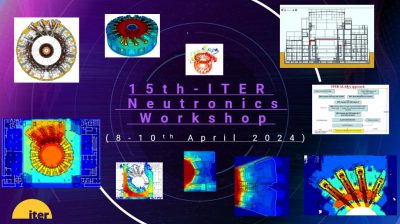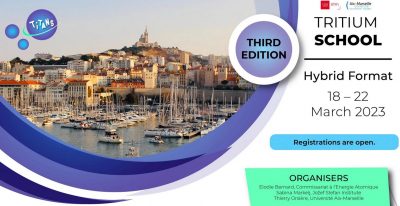
From April 8th through 10th (2024) the ITER Organization gathered researchers, industry partners and all members of the international neutronics community in Cadarache, where the fusion reactor homonymous to the organisation is undergoing construction, to host the 15th Neutronics Meeting and Fusion Neutronics Workshop. Aiming to discuss recent advancements, issues and successes in the neutronics field, the meeting covered several topics including ITER neutronics, safety issues, computational tools and nuclear data relevant to nuclear fusion, shielding materials, damage, heating, waste production and management and neutron sources, among others.
Ezequiel Goldberg, member of the Fusion Group, attended the meeting where researchers made presentations from both public and private institutions from Spain, France, Italy, Germany, Finland, Slovenia, the UK, the US, Russia, India, Korea, Japan, China, and international organisations such as the ITER Organization and the IAEA (International Atomic Energy Agency).




